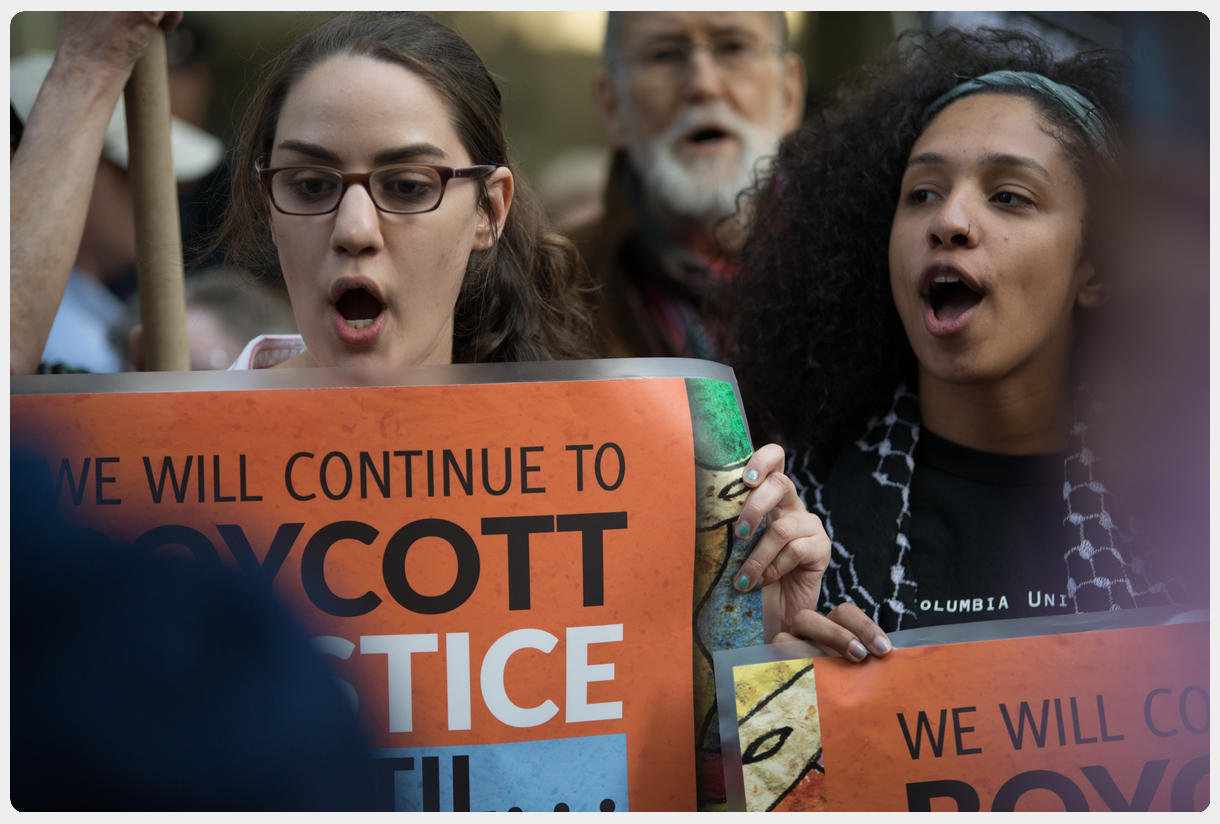Arizona’s amended anti-boycott law still constitutionally flawed
/Credit: Sainatee Suarez
Months after a federal court blocked Arizona from enforcing its anti-boycott law saying it was unconstitutional, the state has attempted to revive the law by amending it so that it no longer applies to the man who challenged it.
On Tuesday, Arizona Governor Doug Ducey signed SB 1167 amending the state’s 2016 anti-boycott law prohibiting state contractors from supporting boycotts of Israel. This was despite significant opposition to the amendment in the Arizona House, where it passed 37-21 with vigorous debate.
Only companies with more than 10 employees and contracts above $100,000 will now be required to certify in writing that they are not and will not engage in boycotts of goods or services from Israel or territories controlled by Israel.
In 2017, the ACLU filed a lawsuit against the state on behalf of Arizonan attorney Mikkel Jordahl and his sole practitioner law firm arguing that the 2016 law violates core First Amendment rights.
In September 2018, a federal judge blocked enforcement of the state’s anti-boycott law, finding that the law “unquestionably burdens the protected expression of companies wishing to engage in such a boycott.” Arizona has asked the Ninth Circuit Court of Appeals to reverse the decision.
Palestine Legal and the Center for Constitutional Rights submitted a friend-of-the-court brief to the Ninth Circuit in January 2019. The appeals court was set to hear arguments in June.
Arizona’s new amendments mean that the law will no longer apply to Jordahl, whose solo firm contracts with the state to provide legal services to indigent defendants. The state is expected to argue that the court should throw out the ACLU’s lawsuit since Jordahl will no longer be personally impacted by the law.
While the changes may reduce the number of individuals affected by the law, it will not resolve the underlying constitutional issues.
“Policing the political viewpoints and activities of state contractors is a violation of the First Amendment when these views and activities are unrelated to the work the contractor is doing,” said Palestine Legal staff attorney Zoha Khalili. “This is true regardless of whether the contractor is an individual or a large corporation. The new law still uses the state’s economic leverage to suppress expressions of support for Palestinian rights.”
Arizona is one of 27 states that have passed anti-boycott laws. In narrowing its law to skirt a legal challenge, Arizona is following Kansas’ example, and Texas has already introduced similar amendments to its law in the face of several challenges. As the ACLU said, states like Arizona are “running scared” from defending anti-free speech laws in court. These laws will continue to be challenged because they have the same constitutional pitfalls.
And as Jordahl, the plaintiff in the Arizona case, explained, “Boycotts are an important way for people to collectively call for social change and this peaceful form of protest has long been protected by the Constitution. No matter where you stand on the issue of Israel and Palestine, it should be clear that we as individuals have a right to engage in peaceful individual boycotts and a right to not spend our money in the way we choose.”
This week, Palestine Legal filed a friend-of-the-court brief in the Eighth Circuit Court of Appeals with the Center for Constitutional Rights and the Law Office of Matthew Strugar in support of a lawsuit seeking to strike down an Arkansas law that requires government contractors to pledge not to boycott Israel.
View more about state and federal anti-boycott legislation at righttoboycott.org.


